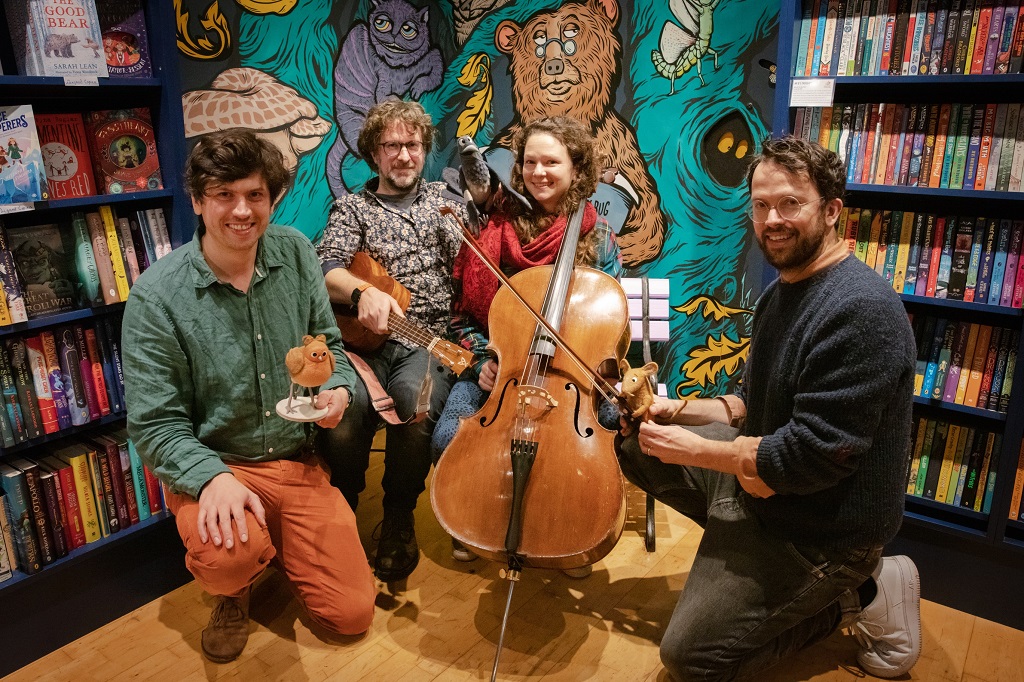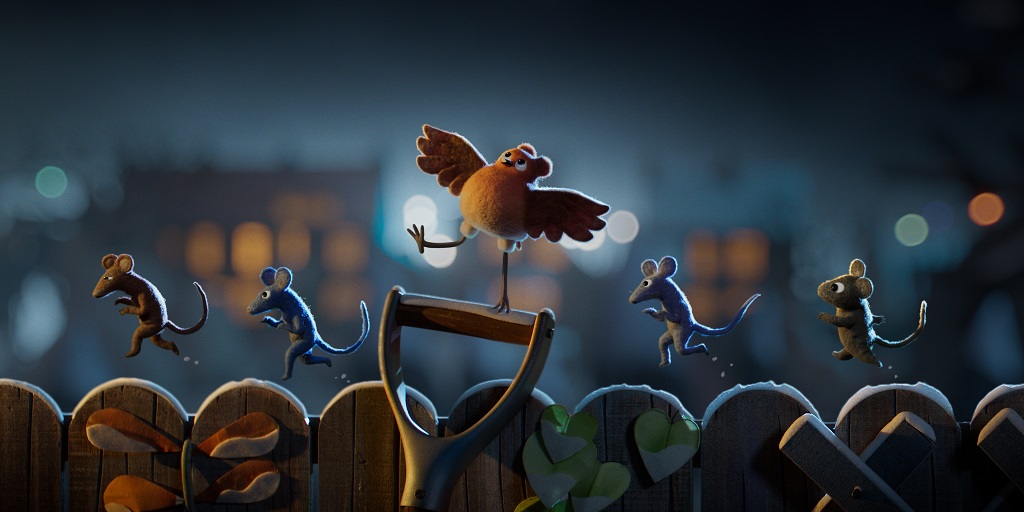A Scots band went global when their music featured in an Aardman and Netflix musical special.
Wigtown duo, The Bookshop Band, were delighting children and families worldwide in Robin Robin, the first-ever full blown musical from Aardman – creators of Wallace and Grommit – was released on Netflix.
Beth Porter and Ben Please, who moved to the small coastal town in south-west Scotland from Bath five years ago, not only composed and performed the music and songs but also coached the film’s stars Gillian Anderson, Richard E. Grant and Bronte Carmichael.
The 30-minute animated short tells the tale of a small bird with a big heart. Raised by a family of burglar mice, Robin (Carmichael) sets out on a big adventure to steal a sandwich so they can all enjoy a real feast. Along the way she encounters a curmudgeonly magpie (Grant) and faces mortal danger from the villainous Cat (Anderson) who fancies Robin and friends as her own lunch.
Beth said: ‘We’ve worked on short animations before but this is by far the biggest project of its kind we have ever taken on – and it’s been great.
‘One of the wonderful things is that music we composed and recorded here in Wigtown ispart of millions of people’s entertainment all over the world.’
The Bookshop Band, who are well-known for the literature-related songs they write and perform (sometimes accompanied by famous authors), were involved with the Robin Robin project right from its start over two years ago.
They gave each character its own musical identity – Robin’s appearances are accompanied by a recorder, the cat by a bass clarinet and the magpie’s theme is a muted jazz trumpet. There’s even a nod to the music of previous Aardman projects, like Wallace & Gromit, with the frequent use of a brass band in the background.
Much of what audiences will be listening to is pure Bookshop Band, though the husband-and-wife team brought in additional musicians for some parts and even a full choir for the finale.

The Bookshop Band’s Ben and Beth at Mr B’s with Mikey Please (R) and Dan Ojari (L)
Coaching sessions with the cast were important as they had been selected for the character of their speaking voices rather than because of any background as singers.
Beth said: ‘They were all really down-to-earth and friendly. When we met Gillian she greeted us with a nice little elbow bump. And I was really impressed with the way Richard went through his songs and made them sound just amazing. So they were all really fun to work with.’
One reason why the project worked smoothly and effectively is that it was built on long-standing relationships. Ben is the older brother of one of the film’s directors, Mikey Please, and this is their 10th professional collaboration. Previous work includes Mikey’s 2011 BAFTA-winning short The Eagleman Stag for which Ben composed and performed the music.
Despite being most closely associated with music, Ben has an deep understanding of movies having spent a decade as an environmental documentary maker in East Africa and continuing to work as a cinematographer.
When the brothers were growing up in Bath they often carried out projects together and Ben recalls how his brother’s talent for model-making, that is a key part of his love of animation, began to show at an early age.

A scene from Robin Robin (Photo: Netflix)
He said: ‘When I was about 10 and he was six we were making models and mine were much better. About two years later things had changed and even though he was four years younger, when we made models his were way ahead.’
In recent years their professional collaborations have broadened to involve Beth as another musical talent and, from the movie-making side, Dan Ojari, co-director of Robin Robin.
Ben said: ‘Mikey has an excellent appreciation of music, so he knows what we do and whether it’s right for a project, and we know exactly the sort of thing that he will like.”
This is underlined by the fact that, unusually, some of the very first ideas and recordings The Bookshop Band came up with made it into the final version.
Mikey said: ‘Because we know each other really well, and also have a strong working relationship, we were able to develop the music alongside the story, from the point we pitched it to the point it was made.’
At times, even, Mikey says, the songs were written in advance of the story itself and scenes were written around the music, rather than the other way round: ‘It was not the usual thing where you do a scene and then give it to musicians to score. The two processes went hand-in-hand.’
Find our more at www.thebookshopband.co.uk
TAGS

